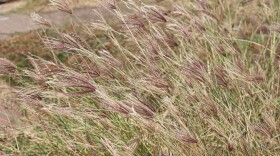The botany and earth science departments at the University of Hawaiʻi at Mānoa have been researching the relationship between native limu and groundwater quality.
Native marine algae, also known as limu, thrive in pristine “Goldilocks” water conditions where there is a steady level of nitrogen and different levels of salinity that move with the tides.
Conversely, invasive algae species flourish in tainted water. Coastal water quality is lowered when the seeping groundwater is tainted by cesspools and sewage leaks.
Earth science professor Henrietta Dulai says climate change also impacts water quality.
"By humans drawing groundwater for our use, we of course lower groundwater discharge. Sea level rise affects and plays kind of a gatekeeper for groundwater discharge as well. So we have both of these happening currently, and we are worried about our coastal springs," Dulai explains.
The combination of polluted water and sea-level rise has disrupted the natural flow of groundwater, creating an unhealthy environment for native limu — and the native fish who rely on edible algae for food.
There are over 550 native species of marine algae, and only 10 invasive species. Although low in numbers, the speed at which invasive algae can grow in polluted water is concerning.
"What I like about this conversation is we’re really trying to shift the state of our ecosystems that would allow the native species, our 550 species, to become abundant again in the places where we have lost them," said Celia Smith, a professor with the botany department.
Healthy coastal waters and native limu have a harmonious relationship.
Dulai, the earth sciences professor, says growing indigenous trees is the best way to improve groundwater quality.
Wastewater management and improving infrastructure to prevent leaks into the groundwater system are also important for water quality, she says.





